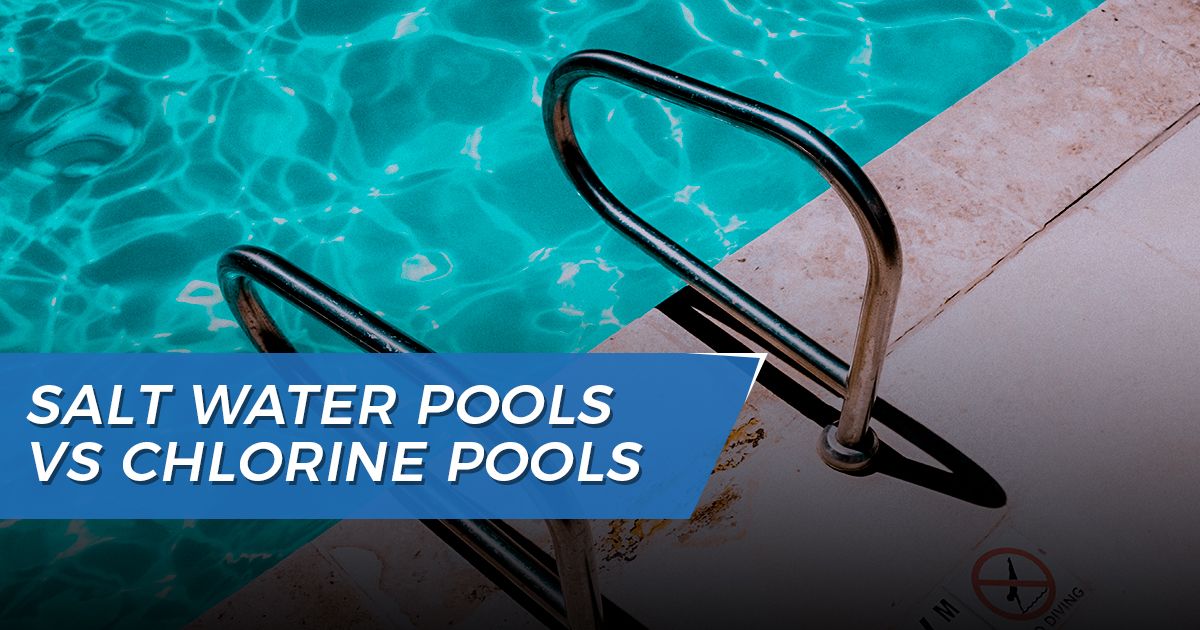Salt water pools are becoming increasingly popular due to their low maintenance, reduced need for chemicals, and overall cleaner feeling. Saltwater pools use a chlorine generator instead of adding chlorine directly into the pool itself. Chlorine is generated when saltwater passes through an electrolytic cell which breaks down the salt molecules into hypochlorous acid and sodium chloride.
This process can sometimes produce a strong smell of chlorine in the air around your pool area depending on factors like temperature, humidity levels and how much sunlight it receives. To reduce or eliminate this unpleasant odor you can turn down your system’s output settings or increase circulation by operating multiple pumps with variable speeds. Additionally, you can add products that absorb odors from water such as activated carbon filters or fragrant oils like lavender oil to help enhance the scent in your swimming environment while neutralizing any chloramine smells produced by the sanitization system.
Having a salt water pool is often seen as the ultimate luxury in terms of swimming pools. Not only do they look beautiful, but they are also incredibly easy to maintain and don’t require the same amount of harsh chemicals that a traditional chlorine pool does. However, one downside can be the strong smell of chlorine that lingers around your pool area due to its unique filtration system.
Although this isn’t necessarily harmful or unpleasant, it’s important to know what you’re getting into before installing a salt water pool.

Credit: www.gpspoolstore.com
Should My Saltwater Pool Smell Like Chlorine?
No, your saltwater pool should not smell like chlorine. Chlorine is a chemical used to sanitize water, and while it’s necessary in traditional pools, it shouldn’t be present in a saltwater pool.Saltwater pools use electrolysis to generate their own chlorine from the salt added to the water.
This means there’s no need for additional chlorine additives or regular shock treatments that may cause an unpleasant odor.Benefits of having a Salt Water Pool:
• Lower maintenance costs
• Softer feel on skin and eyes
• Reduced risk of skin irritation
• More natural alternative to harsh chemicals
Having a saltwater pool eliminates the need for frequent additions of harsh chemicals and reduces their resulting odors, leaving you with fresh smelling clean water without any strong chemical smells.
What Does It Mean When Your Pool Smells Like Chlorine?
When you smell chlorine in your pool, it means that the chemical is efficiently sanitizing the water. This is a good sign and indicates that:
– The right amount of chlorine has been added to the pool;
– Chlorine levels are at their ideal range; and
– The filter system is working properly. Chlorine helps kill germs, bacteria and other contaminants, so having an adequate level of chlorine in your pool will ensure a clean, hygienic swimming area.
Why Does Salt Water Smell Like Chlorine?
Salt water smells like chlorine because salt is a compound made up of two elements: chlorine and sodium.
The smell of chlorine in salt water comes from:
• Chlorine being released into the air when it evaporates
• Sodium reacting with certain chemicals to give off a strong odor of chlorine.
These reactions occur naturally, but can also be enhanced by other environmental factors such as pollution or exposure to UV rays. As a result, saltwater often has an overpowering smell of chlorine that can linger for days after contact.
What Should a Salt Water Pool Smell Like?
A salt water pool should smell clean and slightly chlorine-like. It shouldn’t have a strong, overwhelming odor that is unpleasant or overpowering.The following are signs of a healthy saltwater pool:
* Clear and balanced pH levels.
* Regularly disinfected surfaces to prevent bacteria growth.
* A mild chlorine scent, but not an overpowering one.
All these factors contribute to the overall health of your swimming environment while maintaining its pleasant smell and atmosphere.
Salt Water Pools aren't such a big deal
Conclusion
In conclusion, salt water pools are an excellent option for those looking to enjoy the benefits of a chlorine-free pool. While they may have a slight chlorine smell initially, regular maintenance and proper pH levels should resolve that issue. Additionally, salt water pools require less maintenance than traditional chlorine pools and provide a more natural swimming experience.
With all these great benefits in mind, it’s no wonder why so many people are switching to salt water pools!
